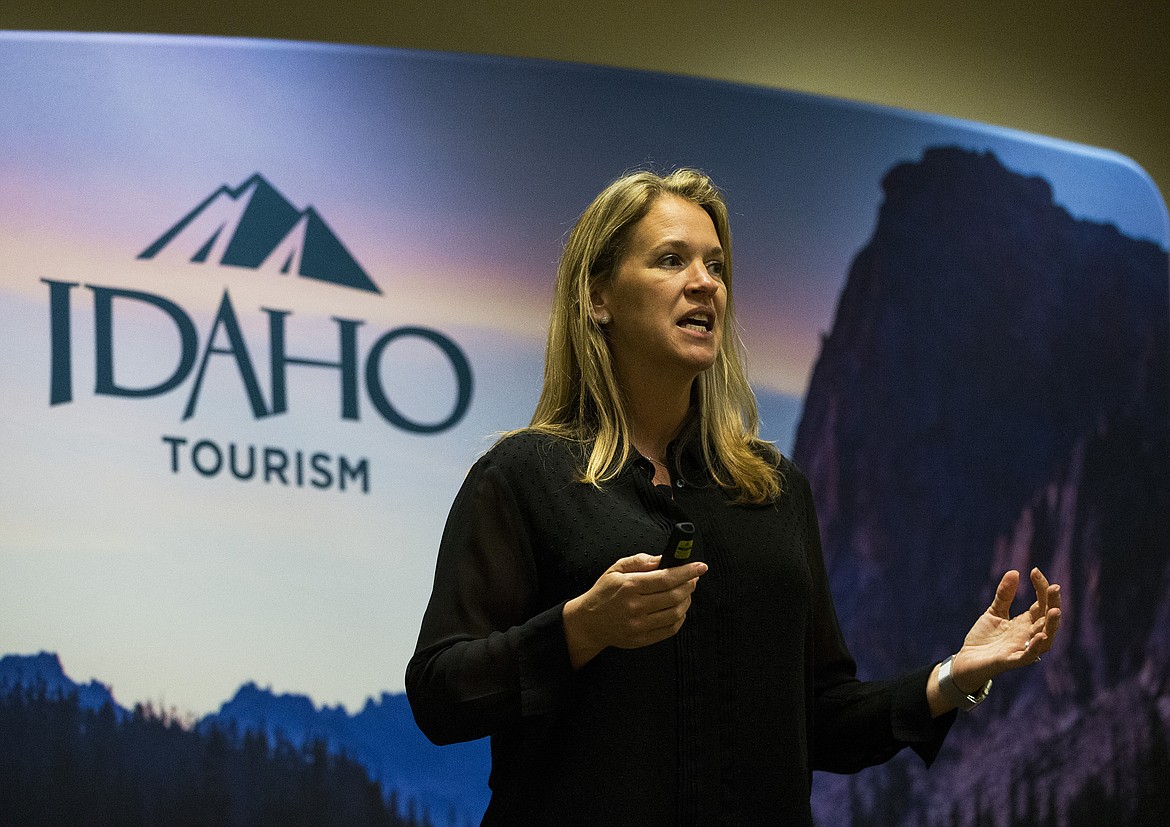More than just a dining experience
By DEVIN HEILMAN
Staff Writer
COEUR d'ALENE — A giant slice of New York pizza, dripping with cheese.
Saucy Texas barbecue that you can smell before you walk into the restaurant.
Indulgent ice cream filled with tart-yet-sweet Idaho huckleberries, hitting the spot on a hot summer day.
Food is remembered by more than just taste buds, and the way people experience it has a huge impact on how they view a destination.
"If you think about all the places you've traveled to, you think about the beautiful scenes you’ve experienced or the great music or perhaps a great art exhibit," said Rebecca Mackenzie, president of the Culinary Tourism Alliance. "Sure those stick out, but can you remember all the times you had a great meal with people you love, or you met somebody really interesting at a farmers market or a festival or event, or you had that incredible glass of wine as part of that scenic view?
"The reality is, when you eat and drink and have a taste education experience, it touches on all five of the senses," she said. "It has much more likelihood to leave a lasting impression with you that then makes you one of the greatest ambassadors of the destination you’ve just visited."
Mackenzie discussed the importance of culinary experiences during her "Developing Your Taste of Place Menu" presentation as a part of the Idaho Conference on Recreation and Tourism. She spoke to a full room at the Best Western Plus Coeur d'Alene Inn on Wednesday, sharing tips on how travel and hospitality leaders can enhance their food tourism practices.
"Food tourists crave intensive and immersive experiences and an opportunity to take something away,” she said.
Having a strong online presence, atmosphere in a store or restaurant, attitudes of staff members and even the signage of an establishment all contribute to the food tourism experience, she said. Some of the strongest markets for food tourism are Millennials, Generation Z and craft beer drinkers, but businesses need to remember to stay connected to locals and those who visit destinations in the shoulder seasons.
She explained that food tourism goes beyond a dining experience. She said the United Nations World Tourism Organization defines it as "anywhere where a visitor to a destination can experience and/or taste food and drink that represents what comes from your 'terroir' — how it’s grown in your soil and your climate, how it’s celebrated at the table through the culture, how it’s celebrated in the kitchen through the culinary techniques."
"It is not just a tourism activity. It is an economic development activity,” she said. "It is about the connection between agriculture, tourism, hospitality, culture, brewing, etc. to bring all of those elements together to not only attract visitors to your destination, but to have the impact of their visit be more, have them linger longer and spend more money. And also increase pride of place by your locals as well as those who visit you."
Food tourism encompasses a large variety of operators, from farmers to chefs to those selling produce at farmers markets.
"Farmers markets are the best way to immerse yourself in a destination. It’s the best way to meet the people, meet the characters,” Mackenzie said. "If farms are selling at farm markets, not only are they diversifying their revenue stream, they are by virtue helping to support the tourism industry because farmers markets really can be included in and are a valuable part of food tourism."
The Culinary Tourism Alliance that Mackenzie leads is a Canada-based, not-for-profit association that develops food tourism strategies, implementation plans, product development, education and training around the world.
"Culinary tourism is something we're focusing on at the state level — beers and wines and ciders, food sources and restaurants are doing that," said Laurie McConnell, senior tourism communications specialist with Idaho Tourism, which presents the annual conference. "We're hoping this will give our destinations an idea of how they can integrate culinary tourism into their endeavors and into their product."
For information about food tourism and the work of Mackenzie and her Culinary Alliance team, visit www.growfoodtourism.com.

